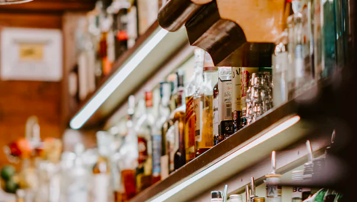New York Boosts Local Craft Spirit Industry with Relaxed Liquor Licensing

New York’s craft distilling business is booming thanks to legislation aimed at removing barriers to entry. Under the urging of Governor Andrew M. Cuomo, the state has passed a flurry of laws in recent years—most notably the Craft New York Act of 2014—that have reduced the operational burdens and costs facing liquor-based small business. The new legislation has helped to reduce license costs, lower taxes, and remove bureaucratic delays. Consequently, more than 500 new craft vendors have planted roots in New York since 2012. Read more…
The Craft New York Act of 2014
Governor Cuomo’s legislation helped to set off a wave of new entrants in New York’s craft distillery sector by simplifying regulations; reducing fees; allowing for off-site tastings and sales; and establishing a new license category for operations qualifying as farm distilleries.
The 2014 Act would initiate a period of increasingly relaxed regulations around applications for craft liquor licenses, with subsequent legislative changes helping to modernize long-outdated Alcohol Beverage Control Laws. The resulting boom in the state’s craft liquor sector has placed New York among the top craft beverage producers in the U.S..
Qualifying for a Farm Distiller License
According to Article I, § 3 of the Alcoholic Beverage Control Act, a farm distillery is any establishment located on a farm where liquor is manufactured and sold, or where liquor is manufactured primarily from farm and food products. There are two basic qualifications for being granted the “Farm” designation:
1. New York State Labelling: A Farm Distiller Class D License authorizes you to manufacture and wholesale up to 75,000 gallons of New York State-labeled liquor annually. This is distinguished from the traditional Distiller Class A license, which allows for manufacture and wholesale of the same annual volume without distinguishing state of origin.
2. New York State Agricultural Products: Additional specifications require that a farm distillery’s output be comprised of a minimum 75% locally-sourced farm products. According to the New York Liquor Authority, this denotes that “75%, by volume, of the fruits, vegetables, grain and grain products, honey, maple sap or other agricultural products used are grown or produced in New York state.”
If your operation meets these two primary qualifications, the benefits of obtaining a Farm Distiller license—as opposed to a traditional Distiller Class A license—are considerable.
The Cost Differential
The cost differential between a Farm Distiller Class D License and a Distiller Class A license is significant. At the time of writing, the fee table provided by the New York State Liquor Authority prices a three-year Distiller Class A license, with filing, licensing and ancillary fees at $50,800, with a mandatory surety bond for an additional $25,000. Compare this to the Farm Distiller Class D license, which requires no surety bond and is also good for three years at a cost of $937.
This cost differential explains the robust growth in the New York craft sector. The more recently created Farm Distiller designation follows a similar pattern in other areas of New York State liquor licensing. The NYSLA fee table lists a host of other craft-scale licenses that are comparably affordable, including those for Farm Winery, Farm Cidery, Microbrewers, and MicroFarm Wineries.
The steep drop-off in price for farm liquor and beer production denotes the economic value in choosing the optimal license for your enterprise.
Article V, § 61 of the Alcoholic Beverage Control Consolidated Laws offers more detail on the types of distillery licenses available to purveyors of liquor in the state of New York.
Learn More About obtaining a New York State Farm Distiller License
The cost of operating a farm distillery is considerably lower than that of a traditional distillery. However, the permitting process can be quite complicated. From zoning and federal approval to licensing through the NYSLA and formula approval/label approval, the process can be burdensome.
For support and counsel on obtaining your own New York State liquor license, either as a Farm Distiller or in any other category, speak to one of our attorneys today:
- Call: (315) 412-0440
- Start Online